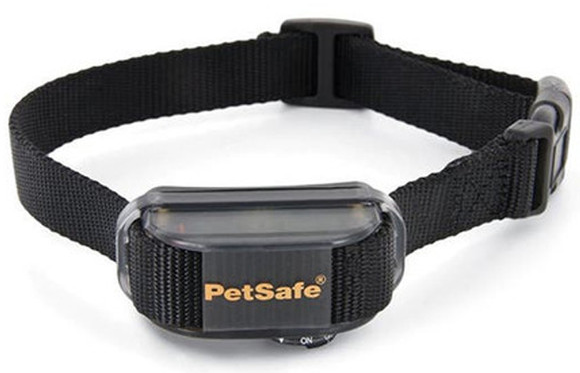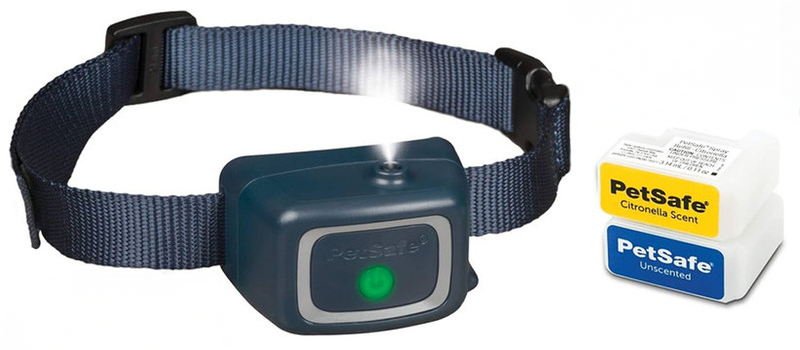Understanding Bark Collars: A Humane Approach for Young Pups and Elderly Dogs
Barking is a natural behaviour in dogs, but excessive barking can become disruptive for owners and distressing for the dogs themselves. Bark collars are often seen as a solution, but choosing the right type of collar is crucial—especially for young puppies and elderly dogs, whose physical and emotional needs require extra consideration. This article explores safe and effective alternatives to electric bark collars for dogs under 6 months of age or elderly dogs (over ten years of age).
Why Electric Bark Collars May Not Be Ideal
Electric bark collars, designed to emit a static pulse stimulus, are the most effective bark collars for healthy, fit dogs over 6 months of age. However, many dog owners are reluctant to use them on young pups and elderly dogs, fearing the use of such collars can lead to:
- Physical discomfort or pain.
- Emotional stress, which can result in anxiety or fear-based behaviours.
- Long-term negative effects on trust between dogs and their owners.
Alternative Types of Bark Collars
Alternatives to electric bark collars can help manage excessive barking without causing undue stress to dog owners and their dogs. Here are some suitable options:
- Vibration Bark Collars
Vibration collars emit a gentle vibration when the dog barks, drawing their attention to the behaviour without causing pain. These are particularly effective for puppies who are still learning boundaries and elderly dogs with hearing difficulties.

PetSafe Vibration Bark Control Collar VBC-10 - PBC17-13338
- Citronella Bark Collars
Citronella collars release a harmless spray of citronella oil, which most dogs find unpleasant. These collars are the most effective electric collar alternative. However, it’s important to monitor your dog’s reaction to the scent, as some dogs might dislike it excessively.

PetSafe Rechargeable Spray Bark Collar - PBC19-16370
- Ultrasonic Bark Collars
These collars emit a high-pitched sound inaudible to humans but unpleasant to dogs. This sound acts as a deterrent for barking. Ultrasonic collars are non-invasive but may require careful use to ensure effectiveness. They are also not recommended in a multi-dog environment.

PetSafe Ultrasonic Bark Collar - PBC17-14036
- Audible Bark Collars
These collars emit a loud burst of sound similar to an aerosol can. whilst being effective, they may not be the best alternative if your dog is inside the house barking through the night!

PetSafe Audible Bark Collar - PBC17-17283
Considerations for Puppies and Elderly Dogs
Both young pups and elderly dogs have specific needs that should guide your approach:
- Puppies: Their bodies and minds are still developing, so we need to ensure they understand what they need to do to stop the corrective behaviour, in this case by stopping their barking. Citronella, vibration, and audible bark collars can be a good starting point in terms of bark collars.
- Elderly Dogs: They may suffer from health issues like arthritis or hearing loss. Citronella or vibration collars, coupled with patience and gentle training techniques, can ensure their comfort and well-being. However, if your dog is suffering from any dementia-like symptoms, then they may not have the ability to now how to stop the correction given by the collar. In this instance, no type of collar may be effective.


The Role of Training and Patience
Bark collars alone are rarely the solution to excessive barking. Barking often stems from underlying causes, such as boredom, anxiety, or excitement. Addressing these root causes through behavioural training, exercise, and enrichment activities is key. Consider consulting with a certified dog trainer to develop a tailored approach for your furry friend if other solutions do not work. After all, dog behaviour is not always an exact science.
Final Thoughts
When managing excessive barking in young pups and elderly dogs, prioritising their well-being and comfort is essential. Alternatives to electric bark collars, paired with patient training and a focus on understanding the reasons behind barking, can create a happier and healthier environment for both dogs and their owners.
If you are unsure of what type of bark collar is best for your dog, please contact one of our Bark Control Experts.






